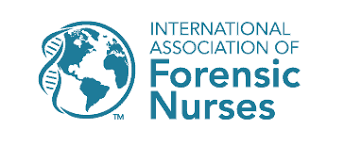Forensic Nurses Week launches with a special focus on November 12 as Forensic Nurses Day. Sponsored by the International Association of Forensic Nurses, this week helps raise awareness of the work nurses in the specialty do and educates those who might interested in forensic nursing as a career path.
If you are fascinated by medical, legal, and criminal issues, a career path as a forensic nurse will address all your interests. Nurses in this specialty work with patients of all ages and all backgrounds who are impacted by violence or intentional injury from abuse or neglect. With their specialized understanding of violence and its impact on people, forensic nurses are excellent advocates and their work brings an antiviolence perspective to their community interactions.
Their work locations are as varied as the specific focus they have. A forensic nurse can help victims of violence who are being treated in an emergency department or they may work in a coroner’s office. Some forensic nurses gain additional certification in Advanced Forensic Nursing (AFN-BC) or as a Sexual Assault Nurse Examiner (SANE-A or SANE-P).
Because of the broad opportunities in the field of forensic nursing, the professional skills in this specialty cover a lot of ground. While treating a patient, the nurse will focus on the immediate medical issues with care and compassion for the survivor’s experience. But the role of this nurse also focuses on evidence collection and making sure an exam is able to gather as much evidence as possible.
Duties in this role diverge from many traditional nursing specialties because they also dovetail with the legal system. Because forensic nurses work so closely with patients who have experienced some form of violence, they are often called upon to provide testimony in court based on their medical findings and interaction.
Nurses who work with survivors of violence may sometimes work with local or federal authorities after a disaster in the community, both intentional and natural. They also may choose to work in a psychiatric setting or within a correctional institution.
If you’re interested in this career path, gaining broad nursing experience before moving into forensic nursing will help you. Forensic nurses see many different kinds of injuries and trauma–both physical and emotional–and being able to call on a wide background of nursing skills will only help you be a better nurse. You should also have an interest in the criminal justice and legal systems. Although your training as a forensic nurse will familiarize you with specific details and duties that you’ll need, having a good grasp of these systems will help you learn faster. And because the intensity of the work can sometimes be distressing, forensic nurses will need personal strategies for recognizing how to manage the impacts of their work on their own mental and physical health.
Forensic nurses play a critical role in the connections between the healthcare, patient advocacy, and criminal justice systems.
- Is the FNP Program Right for You? - April 24, 2024
- WOC Nurses Week Highlights Specialty - April 16, 2024
- Honoring Radiology Nurses Day on April 12 - April 12, 2024



